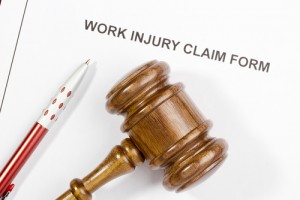How Workers’ Compensation Fraud is Determined
Posted October 21st, 2015 by Anthony Carbone, PC.
Categories: Workers Compensation.
 When you are hurt in an accident on the job, you know that workers’ compensation will be there to take care of your medical bills and loss of wages. But unfortunately, many people abuse the system and get money for injuries they never had. This happens all too often and in New Jersey, it is a serious crime.
When you are hurt in an accident on the job, you know that workers’ compensation will be there to take care of your medical bills and loss of wages. But unfortunately, many people abuse the system and get money for injuries they never had. This happens all too often and in New Jersey, it is a serious crime.
In 1998, a bill was signed into law addressing the crime. The Workers’ Compensation Fraud Act states that if a claimant who has “purposely or knowingly” made false or misleading claims in order to obtain benefits wrongfully will be charged with a fourth degree crime. This means, if you committed and are found guilty of workers’ compensation fraud, the following will happen to you:
- You will have to pay back the money you received plus interest and penalties
- You will be denied benefits
- Possible jail time
But how does New Jersey determine if your committing insurance fraud or if your claim is legit? It’s all in the wording the act. There needs to be evidence “beyond a reasonable doubt” that you had intended to commit fraud. For example, you and your employer decide to file a false workers’ compensation claim. You stage an accident where a heavy object falls on your back. You go to your employer’s doctor who feels your injuries are not a severe as you say they are. However, a claim is filed on your behalf and you start getting payments. But someone starts looking into your case and questions the doctor about the severity of your injuries. In the meantime, your employer admits to wrongdoing. With the doctor’s testimony and your employer’s confession, you are now being considered for filing a fraudulent claim.
If you are being accused of workers’ compensation fraud, you will need an experienced lawyer to help you. Contact the Law Offices of Anthony Carbone today for a free consultation.


